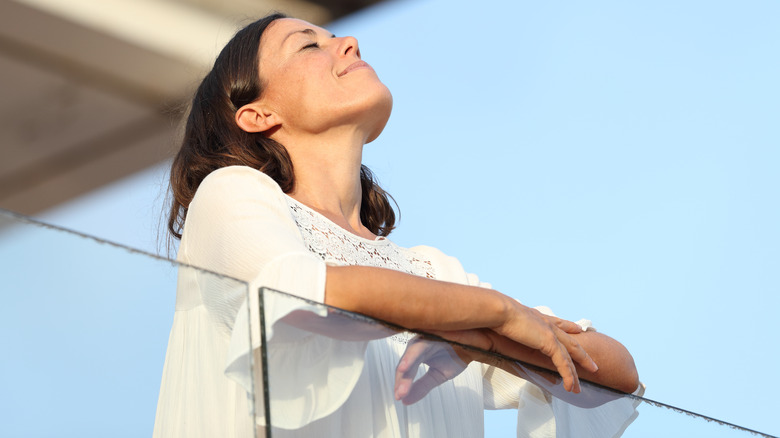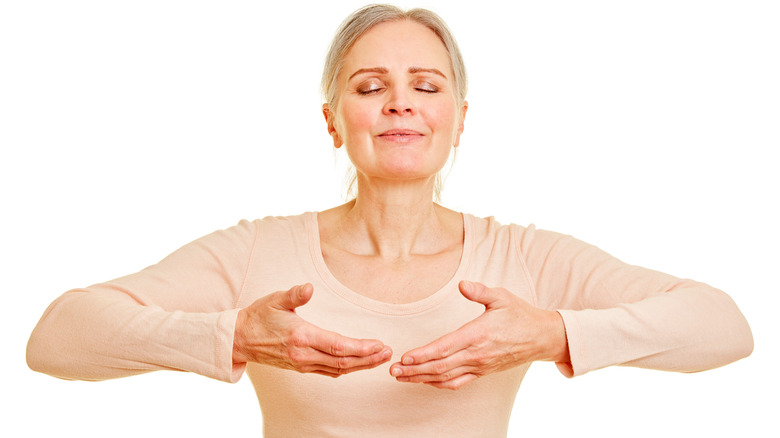The Real Reason You Don't Have To Think About Breathing
Of all the things we do mindlessly throughout the day — brush our teeth, lock the front door, grab our phone when we hear the "ping" of an email — breathing is a bodily function we do unconsciously. According to Scientific American, humans average 10 breaths per minute. All that breathing not only keeps us alive, but it enables us to speak, laugh, yell, and sing moment to moment. How is it that something that bears so much responsibility gives us hardly any thought?
Breathing falls into the category of an involuntary bodily function (per Popular Science). While walking, raising one's hand, and eating are all movements that can be consciously put into action voluntarily, BYJU'S states, sneezing, yawning, and breathing cannot. Breathing functions as a means to maintain a balance between the oxygen we intake and the carbon dioxide we exhale. So it's logical to think that the lungs would be responsible for automatically kicking breathing into action. But surprisingly, breathing is regulated by another part of the body altogether.
The difference between conscious and unconscious breathing
As it so happens, it's our brain that's responsible for the unconscious breaths we take (via Popular Science). A structure called the medulla oblongata sits at the base of the brain by the spinal cord and regulates the balance between our oxygen intake and expulsion of carbon dioxide. The nerve receptors in this area of the brain are able to communicate with the body when there's a buildup of carbon dioxide and prompt the muscles to take a breath. This occurs even when we're fast asleep and especially when we're in the midst of intensive exercise. The heavier the panting, the more oxygen your brain is having your body inhale.
Breathing is unique in that while it is naturally involuntary, we can still exercise conscious control over it. The act of voluntarily slowing our breath has been scientifically linked to health benefits such as reduced stress, heightened alertness, and a boost in immunity (per The New York Times). Rapid breathing can heighten the body's stress response, but when taking slow breaths, we chemically signal the brain into a more relaxed state. Assistant clinical professor of psychiatry at New York Medical College Dr. Patricia Gerbarg states via The New York Times, "If you breathe correctly, your mind will calm down."
While we don't have to consciously think about breathing in order to keep ourselves alive and functioning, choosing to put some thought into it can provide us with both physical and mental health benefits.


